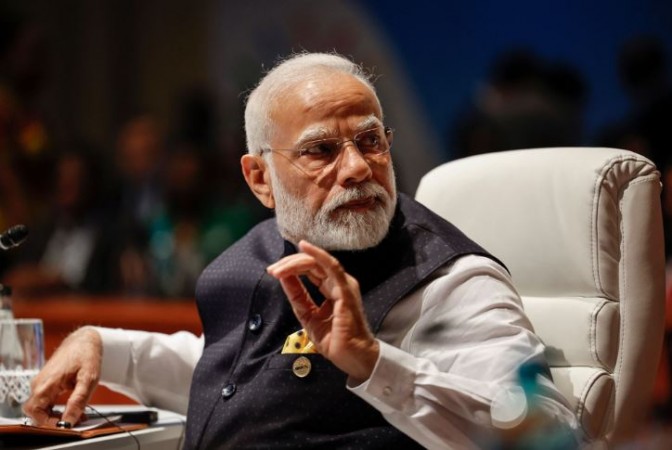
The upcoming 2024 Indian general elections seem poised to secure Prime Minister Narendra Modi a historic third consecutive term in office, according to a report from Jefferies. Modi's popularity stems from his effective implementation of social programs, a strong focus on employment-centric development, effective communication strategies, and emotional appeals. Prudent financial management of equity investments is also cited as a crucial factor in his political success, as detailed in Jefferies' recent report titled 'India Politics Playbook.'
The report projects that the Bharatiya Janata Party (BJP) is likely to win between 251 and 300 seats, potentially securing a majority on its own or with support from its NDA partners. In contrast, the opposition INDIA alliance is expected to have a limited impact, primarily in only six states: West Bengal, Maharashtra, Delhi, Punjab, and Bihar. In terms of seat allocation, the INDIA alliance is predicted to make a modest difference of 15-25 seats to the BJP's total tally in the 2024 Lok Sabha elections.
India has experienced political stability under the BJP, led by PM Modi since 2014, marking a significant shift in Indian politics after a 30-year period without a single-party majority. In 2019, the BJP returned to power with an even larger mandate, winning 303 out of 543 seats. This political stability has allowed the government to enact several reforms that might have been challenging under a coalition government.
Jefferies' analysis of the last four general elections (2004, 2009, 2014, and 2019) reveals that financial markets tend to anticipate and reflect expected election outcomes approximately six months before the election date. This phenomenon occurs because markets favor a stable government committed to development and reform.
Despite some setbacks in the 2018 state elections in Madhya Pradesh, Rajasthan, and Chhattisgarh, the BJP managed to secure a decisive victory in the 2019 national election.
Jefferies assigns a 20 percent probability that the BJP may not secure enough seats for an outright majority but could still form a government with the support of its coalition partners. The Opposition, represented by the INDIA alliance comprising 28 parties, aims to pose a strong challenge to the BJP in the 2024 LS elections, potentially resulting in a loss of 15-25 seats for the BJP.
However, the report notes that crossing the majority mark of 272 may be challenging for the BJP in 2024 due to the united opposition, compared to the fragmented opposition it faced in previous Lok Sabha elections.
The report also discusses the impact of the COVID-19 pandemic on India's economy, characterized by an uneven "K-shaped" recovery. While the top economic strata remained largely unaffected, indicators like consumer staple demand growth and two-wheeler sales in rural areas have been weak, although there are signs of improvement.
PM Modi's popularity remains a significant advantage for the BJP, as there is currently no strong, universally accepted prime ministerial candidate in the opposition camp. Surveys indicate that PM Modi maintains a high approval rating, hovering around 70 percent.
The report predicts limited losses for the BJP in major states like Bihar and Maharashtra, despite political realignments and the loss of allies. In Uttar Pradesh, Chief Minister Yogi Adityanath's popularity is expected to secure a majority of seats for the BJP.
While the 2024 Indian general elections hold potential challenges for the BJP due to a united opposition, PM Modi's popularity and the party's strong presence in key states suggest they are well-positioned to maintain a dominant position in Indian politics.